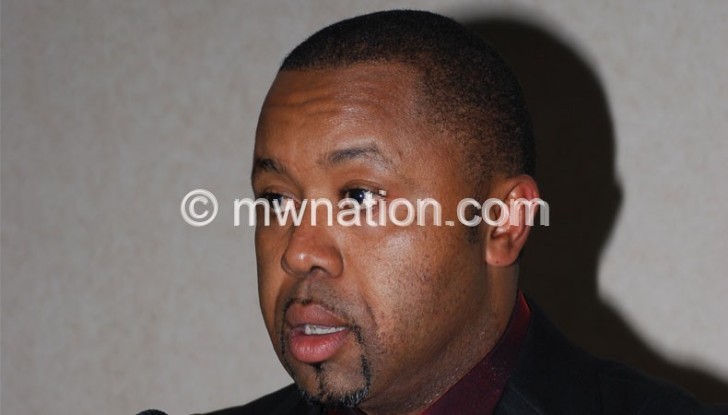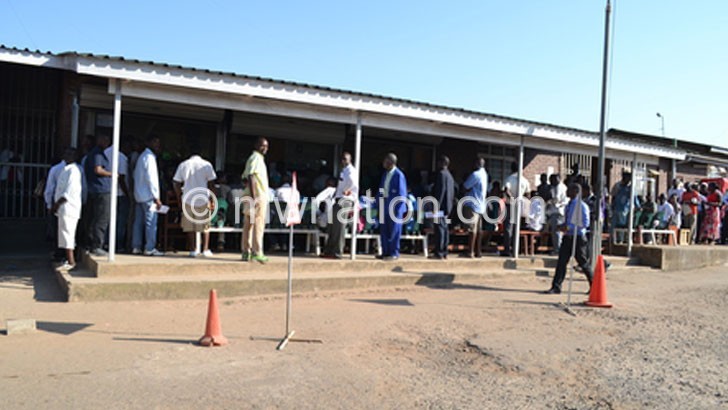Reforms on microscope: Are they translating?
A year ago, it would take businessperson Sam Chiunda, from Blantyre, two days to register a new vehicle at the Directorate of Road Traffic and Safety Services in Blantyre. Often, he says, he could be forced to incur extra costs by driving to Zomba office because ‘it is a bit less congested and faster’.
Today, Chiunda is all smiles. Since the upgrade of the Malawi Traffic Information System (Maltis) at DRTSS, services, he admits, are fast and long queues are gone.
“I sometimes ask myself: Is this the same Malawi? I am in the business of buying and selling vehicles. I can tell you that I don’t even spend hours to process vehicle registration be it change of ownership or anything. Let us face it, things are going in the right direction at the Directorate,” he admits.
What Chiunda does not understand are the forces behind the good services he is enjoying.

The changes at DRTSS are just one of the many changes being experienced in various pockets of public institutions in the country courtesy of the Public Sector Reforms Programmes (PSRP) currently underway.
Launched by President Peter Mutharika in February last year, the rationale of the reforms is to enhance management and institutional capacity of the public service to effectively deliver quality public goods and services, and enable the country to mitigate and manage emerging challenges from the fast changing global environment.
Experts note that effective implementation of public sector reforms would enable the government to, among others, position the public service to meet high expectation, change the work culture and enhance ethics and integrity. They add that reforms would also improve revenue collection, address issues of transparency and accountability, ensure prudent management of public resources and, above all, attract and retain competent workforce.
So, are these reforms translating?
Milestones in line ministries
During a recent meeting with the private sector in Blantyre, chairperson for the Public Sector Reforms Commission Vice-President Saulos Chilima said ministries are gradually performing very well compared to the first and second quarters, as evidenced by important milestones that have been achieved.
He specified decentralisation of teachers’ salaries, the establishment of Higher Education Students’ Fund, the decentralisation of printing of passport and the upgrade of Maltis.
To this list Chilima added the establishment of a Functional Internal Audit System to ensure compliance with the Public Finance Management (PFM) Act and Treasury instructions, configuration and integration of Ifmis to all government accounts and introduction of registration of births and deaths and issuance of certificates as other milestones.
“We have also seen strides in advanced preparatory work on the production and issuance of national identity cards; having a Registrar of Business introduce Malawi Business Registration System and also enabling reform legislations are in Parliament awaiting enactment into law (Land and Communication bills),” he said.
Changes in parastatals
The other sector which reforms targeted were State-controlled companies, simply known as parastatals.
According to Chilima most of the parastatals reported tremendous progress in their areas of reform. He argues they have truly embraced the spirit of the reforms and are demonstrating greater discipline, willingness and dedication. However, he noted that most of them are still at process level and continue to develop policies that will unlock the potential to deliver tangible benefits in future.
Among others, Chilima spelt out the toll gate and car park automation at Kamuzu International Airport which has been fully implemented as another milestone.
This has seen a 150 percent increase in fee collection (from K2 million to K5 million per month), he added.
He also touted milestones at the Tevet Authority. The skills training body subcontracted levy collection system to MRA and so far, he said, over K450 million has been collected from November 2015 to March 2016 which is more than the revenue during the same period in previous years.
He further underlined that actual levy income has increased as at December 2015 from K6.5 billion to K9.9 billion, representing a 53 percent increase. The incremental benefit attributed to the reform is a 35 percent increase and the trend is expected to continue, he said.
Even water boards, said Chilima, are showing signs of hope.

due to system reforms
“The Northern Region Water Board has managed to reduce non-revenue water [Water lost through inefficient distribution network] from 37 percent to 33 percent resulting in an increase in sales volume from 1.9 to 2.1 cubic mm and sales revenue from K1.1 billion to K1.3 billion approximately. The K200 million is an incremental benefit attributed to implementing the reform,” he said.
Southern Region Water Board, he added, reduced non revenue water from 39 percent to 27.8 percent, translating to K241 million as an incremental benefit to the board.
On the other hand, Blantyre Water Board, he said, has introduced mobile billing hand held readers and printers. This, he noted, will bring about efficiency on the billing system as customers would be able to know their bills on site and in good time.
Chilima also looked at reforms at Admarc which has embarked on a diversification drive. Currently, they have acquired a farm (500 hectares) in Chingale in Zomba and the vision is to venture into poultry production, grain and milling (floor production). Admarc has also procured two farms (701 hectares) at Katuli in Mangochi for crop production.
The Malawi Bureau of Standards (MBS) has not been left out with its groundbreaking of Standardisation Quality Assurance and Metrology (SQAM) projects that took place in January this year.
With these initiatives, Chilima said, Malawi export products will be tested locally at relatively cheaper services and will be accepted without further retesting.
Malawi will also offer conformity assessment services to neighbouring countries, in the process earning foreign exchange, he said.
Chilima also noted that the energy body, Electricity Supply Corporation of Malawi (Escom), has made some strides.
“About 22 000 customers migrated from post to prepaid meters against 43 200 customers; 27 047 conventional prepaid meters replaced against 31680; Revenue collection efficiency improved from 29 to 32 percent and the incremental gain of this reform is K173 million,” he said.
Call to private sector
Chilima further noted that under the PSRP, the public institutions are implementing various projects which require the private sector to support.
For instance, Chilima said the National Herbarium and Botanic Gardens of Malawi is implementing capital investment projects such as building restaurants and walls around botanic gardens in the country and is calling for private institutions to raise adverts on these walls.
He also said Malawi Gaming Board is calling for public private partnerships (PPP) targeting tourist destinations such as Mangochi, Zomba, Salima and Likoma Island.
Malawi Housing Corporation (MHC) is considering entering into a PPP to construct 2 500 houses in the major cities and constructing houses in the security institutions, he said.
Chilima, therefore, called on the private sector to collaborate with public universities in research and development project proposals that will contribute to social and economic development of the country specifically in areas of energy, agriculture and business chain innovations.n





